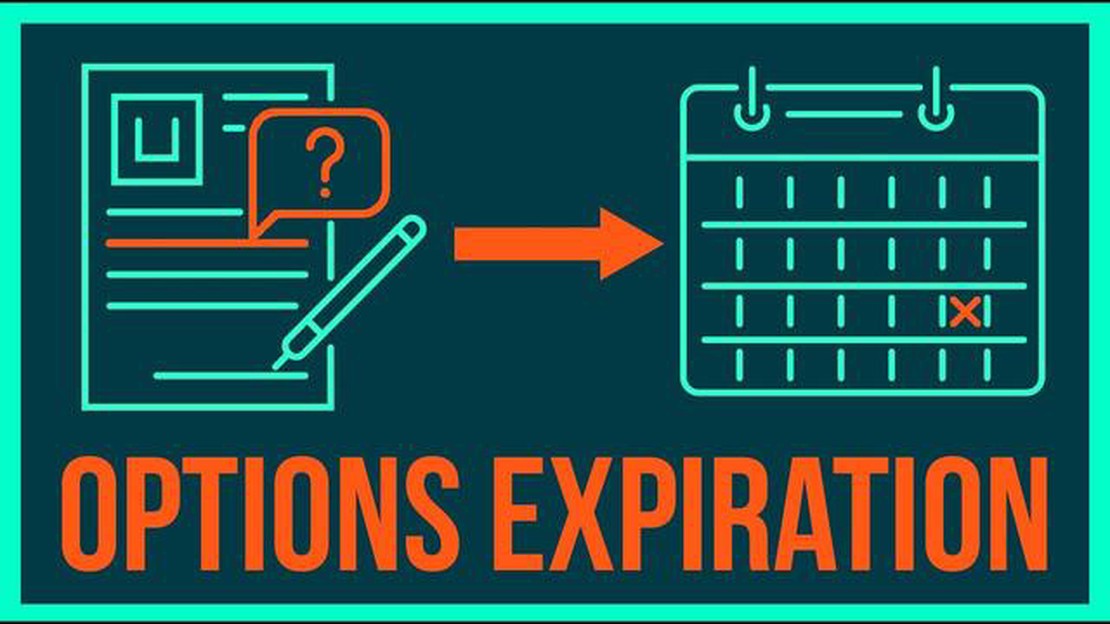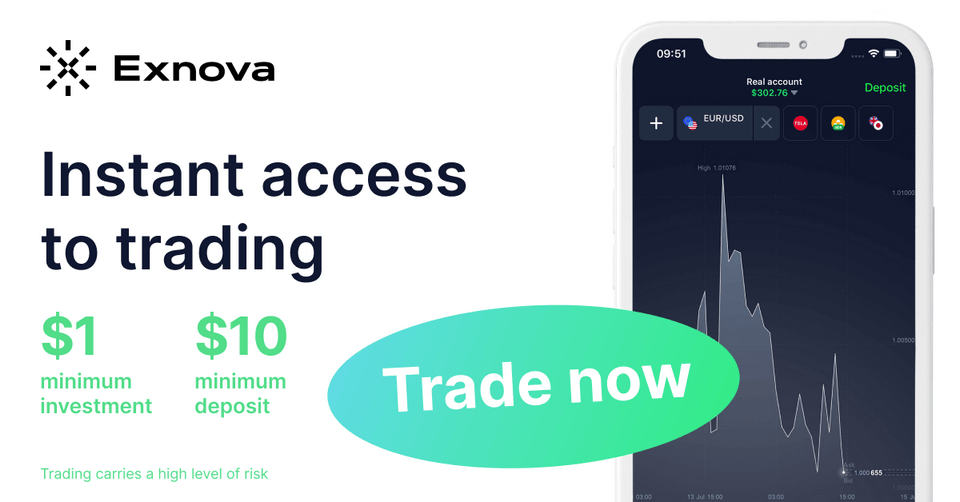Understanding the Zig Zag Strategy: A Guide to its Definition and Implementation
What is Zig Zag strategy? The zig zag strategy is a popular investment approach that aims to identify changes in a trend and capitalize on them. It is …
Read Article
Options are derivative contracts that give traders the right, but not the obligation, to buy or sell assets (like stocks, commodities, or cryptocurrencies) at a predetermined price (known as the strike price) on or before a specific date (known as the expiry date). The expiry date is a crucial factor when it comes to options trading as it determines the lifespan of the contract.
When an option reaches its expiry date, several outcomes are possible depending on whether the option is in-the-money, at-the-money, or out-of-the-money. An option is considered in-the-money if the current market price is above the strike price for a call option or below the strike price for a put option. Conversely, an option is out-of-the-money if the current market price is below the strike price for a call option or above the strike price for a put option. If the current market price is equal to the strike price, the option is at-the-money.
For in-the-money options, the option holder can choose to exercise the option and buy or sell the underlying asset at the strike price. On the other hand, if the option is out-of-the-money, it will generally expire worthless, and the option holder will lose the premium paid for the option.
It’s important to note that options can also be closed prior to the expiry date through a process called “selling to close” or “buying to close.” This allows traders to realize profits or limit losses without waiting for the expiry date. However, if the option is not closed before expiry, it will follow the aforementioned outcomes based on its in-the-money, at-the-money, or out-of-the-money status.
Key Takeaway: Options on expiry can result in different outcomes depending on whether they are in-the-money, at-the-money, or out-of-the-money. In-the-money options can be exercised, while out-of-the-money options generally expire worthless. Traders also have the option to close their positions before expiry.
Options are derivative financial instruments that give the holder the right, but not the obligation, to buy or sell an underlying asset at a specified price, known as the strike price, on or before a specific date, known as the expiration date. When the expiration date of an options contract arrives, several things can happen depending on whether the option is “in-the-money”, “at-the-money”, or “out-of-the-money”.
 6. Out-Of-The-Money Options:
7. Call Options: If a call option is out-of-the-money, meaning the underlying asset’s price is lower than the strike price, the option holder will not exercise the option as it would lead to a loss. The option will expire worthless.
8. Put Options: If a put option is out-of-the-money, meaning the underlying asset’s price is higher than the strike price, the option holder will not exercise the option as it would lead to a loss. The option will expire worthless.
6. Out-Of-The-Money Options:
7. Call Options: If a call option is out-of-the-money, meaning the underlying asset’s price is lower than the strike price, the option holder will not exercise the option as it would lead to a loss. The option will expire worthless.
8. Put Options: If a put option is out-of-the-money, meaning the underlying asset’s price is higher than the strike price, the option holder will not exercise the option as it would lead to a loss. The option will expire worthless.
It is important to note that the outcome of options on expiry depends on the individual option holder’s choices and market conditions. However, the most common outcome for options that are out-of-the-money is for them to expire worthless. Exercising an option requires careful consideration of the underlying asset’s price and market conditions.
When options expire, there are a few things that can happen depending on the scenario. Here’s what you can expect:
In the Money:
Read Also: Discovering Dream Fox Services Limited: Your Ultimate Guide
If an option expires “in the money,” it means that the option’s strike price is favorable compared to the current market price of the underlying asset. In this case, the option holder will automatically exercise their right to buy or sell the underlying asset at the agreed strike price. The options contract will be settled, and the respective gains or losses will be realized.
Out of the Money:
Read Also: How to Determine if Your Phone is 4G or 3G | Ultimate Guide
When an option expires “out of the money,” it means that the option is not profitable based on the current market price of the underlying asset. In this scenario, the option holder will not exercise their right to buy or sell the underlying asset. The options contract will expire worthless, and the trader will lose the premium they paid for the option.
At the Money:
If an option expires “at the money,” it means that the option’s strike price is the same as or very close to the current market price of the underlying asset. In this case, the option holder can choose whether to exercise their right or let the option expire worthless. They will need to consider the costs and benefits of exercising the option before making a decision.
Automatic Exercise:
In some cases, options may be automatically exercised by the broker if they are “in the money” by a certain amount. This is known as “automatic exercise.” Traders should familiarize themselves with their broker’s policies regarding automatic exercise to avoid any surprises.
Settlement:
Once an option expires, the settlement process begins. The terms of the options contract will dictate how the settlement is carried out. Depending on the type of option (e.g., American or European) and the underlying asset, settlement may involve the physical delivery of the underlying asset, cash settlement based on the option’s intrinsic value, or a combination of both.
Planning Ahead:
Traders should always plan ahead for options expiration. Whether it’s deciding to exercise an option, closing out a position before expiration, or rolling over to a new option, it’s important to make informed decisions based on one’s trading strategy, risk tolerance, and market conditions.
Understanding what to expect when options expire can help traders navigate the complexities of options trading and make better-informed decisions regarding their positions.
Options on expiry can have three outcomes: they can be exercised, they can expire worthless, or they can be settled.
When an option is exercised, the holder of the option chooses to buy or sell the underlying asset at the predetermined strike price. This will depend on whether the option is a call option or a put option.
If an option expires worthless, it means that the holder of the option does not exercise the option before the expiration date. In this case, the option expires and becomes worthless, and the holder loses the premium paid for the option.
When an option is settled, the holder of the option receives a cash payment based on the difference between the strike price and the market price of the underlying asset at expiry. This is known as cash settlement and is common for index options.
If you hold an option contract until expiration, you will have to make a decision on whether to exercise the option, let it expire worthless, or sell the option before expiry. Each option has its own risk and reward profile, so it’s important to understand the implications of each choice.
When options expire, they become worthless and expire without any value. This means that if you hold an options contract and it reaches its expiration date, you will no longer have the right to buy or sell the underlying asset at the strike price specified in the contract.
What is Zig Zag strategy? The zig zag strategy is a popular investment approach that aims to identify changes in a trend and capitalize on them. It is …
Read ArticleHow to Open a ZB Bank Account Opening a bank account is an important step towards financial stability and security. If you are considering opening a …
Read ArticleForeign Exchange Reserves of Peru: An Overview Peru’s foreign exchange reserves play a crucial role in the country’s economic stability and financial …
Read ArticleAre SMA and MA the same thing? Technical analysis is an essential tool for traders in the stock market, allowing them to make informed decisions based …
Read ArticleDiscover the Best Place to Learn Forex Trading Forex trading has become increasingly popular in recent years, as more and more people are looking to …
Read ArticleUnderstanding the Significance of an R-squared Value of 0.5 When analyzing data, one common statistical measure used is the R-squared value. The …
Read Article